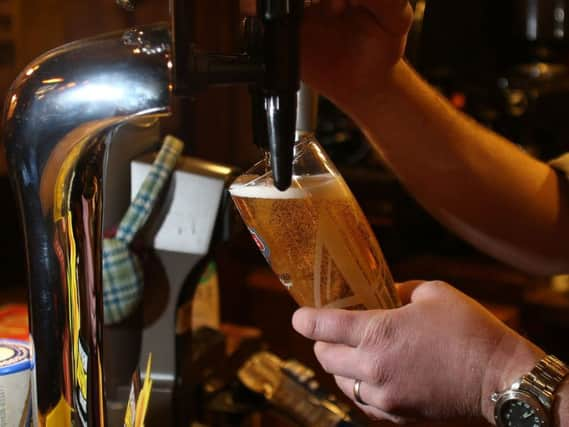'˜Sluggish growth set to continue into third quarter'


The closely watched Markit/CIPS services purchasing managers’ index (PMI) showed a reading of 53.2 in August, down from 53.8 in July and slightly below economists’ expectations of 53.5. A reading above 50 indicates growth.
The report said slow growth in new business sent activity in the dominant industry to its lowest level since September 2016.
Advertisement
Hide AdAdvertisement
Hide AdInflationary pressures were also biting across the sector, with the Brexit-hit pound ratcheting up input costs to a six-month high.
Sterling was marginally down against the US dollar at 1.292 following the update, but the pound was 0.1% ahead versus the euro at 1.087.
The outcome adds to a mixed performance from the UK economy, with output at UK factories unexpectedly pushing to a four-month high in August, while the construction sector slipped to a one-year low for the month.
Chris Williamson, chief business economist at IHS Markit, said the services sector had put the UK economy on course for third-quarter growth of 0.3%, the same rate as the second quarter.
Advertisement
Hide AdAdvertisement
Hide AdHe said: “A summer slowdown was evident in the economy as the August PMI surveys showed slower rates of expansion in services and construction offsetting an improved performance in the manufacturing sector.
“The resulting overall expansion was the weakest for six months.
“Although the latest two months’ data put the economy on course for another 0.3% expansion in the third quarter, momentum is being gradually lost.
“Robust manufacturing growth means the economy may be rebalancing towards goods production, aided by the weaker pound, but the slowdowns in services and construction send warning signals about the health of the economy.
Advertisement
Hide AdAdvertisement
Hide Ad“In services, the weaker growth trend was most evident in consumer-facing sectors such as hotels and restaurants and other personal services, which includes businesses such as cinemas, gyms and hairdressers.”
Despite the deeper-than-expected fall, the number of jobs created remained at healthy levels in August, picking up for the third month on the bounce and touching a 19-month high.
The move was driven by the largest rise in work backlogs since July 2015, forcing firms to take on more staff to tackle orders. Business confidence also reached a three-month high, but the level remained lower than before Britain voted to divorce from the European Union last year.
Duncan Brock, director of customer relationships at the Chartered Institute of Procurement & Supply (CIPS), said: “Service providers negotiated their way through more uncertain times as the weak pound gave suppliers a reason to hike their charges.”
Advertisement
Hide AdAdvertisement
Hide AdThe Office for National Statistics (ONS) confirmed last month that Britain delivered the slowest growth in the second quarter out of the G7 group of nations, expanding by 0.3% in April to June, up from 0.2% during the first three months of the year.
It came as household spending slumped to its lowest level in nearly three years following a slowdown in new car sales and persistent pressure from higher inflation.
Bank of England official Michael Saunders said on Thursday that a ‘’modest’’ interest rate hike is now needed to curb surging inflation.”